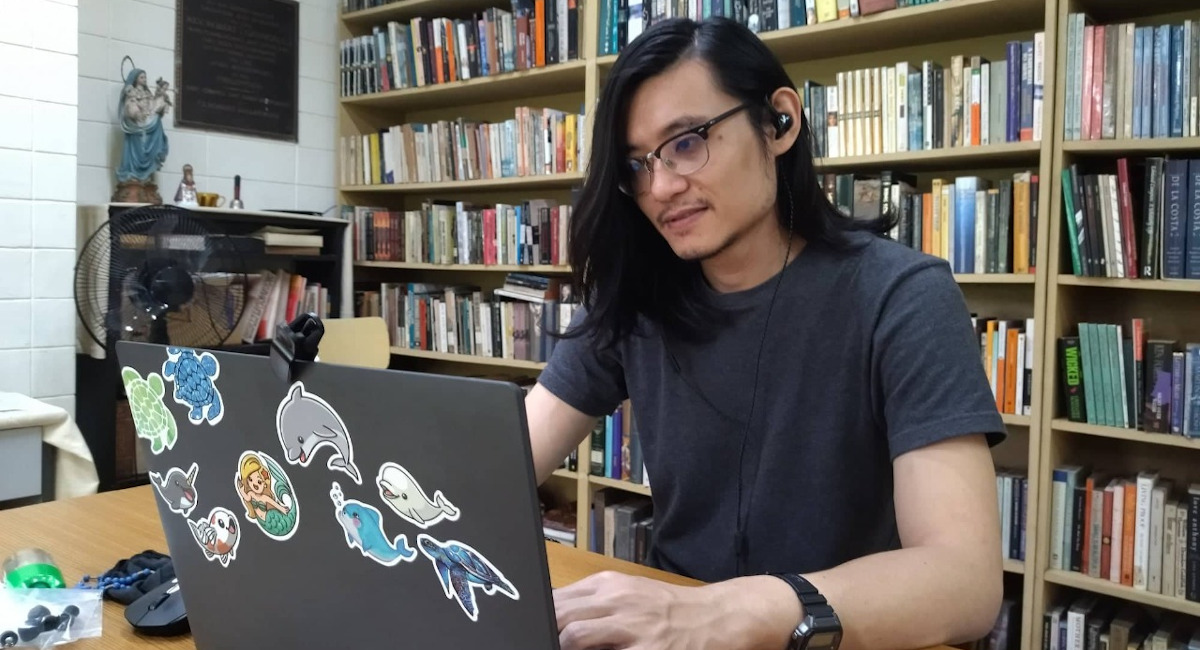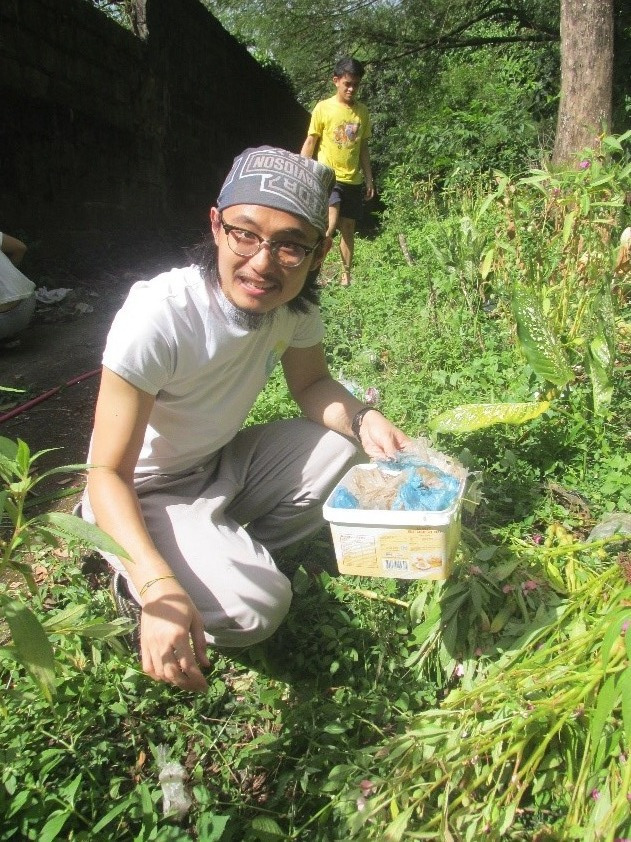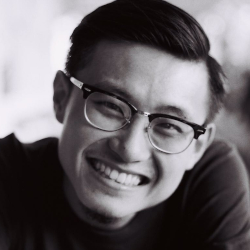
For three weeks, I was assigned to the Environmental Science for Social Change (ESSC) geomatics team for my intersession apostolate. Geomatics is the branch of science that deals with the collection, analysis, and interpretation of data relating to the earth’s surface. Although we could only interact online due to the pandemic, it was fruitful for my formation as a Jesuit Brother.
One of the Universal Apostolic Preferences (UAP) of the Society of Jesus is to collaborate, with Gospel depth, for the protection and renewal of God’s creation. In this short learning stint, I was inspired to hope and led to ways I can actualise the UAP as a Jesuit starting philosophy studies.
Learn
“They are like trees planted by streams of water, which yield their fruit in its season.” (Psalm 1:3)
This Psalm gives a beautiful image of my learning journey in the geomatics team. It was as though I was a sapling planted and then nourished by the knowledge and experience of the group. I wanted to contribute to the work. Instead, I was the one receiving from the team. They allowed me to draw from the knowledge they have, thus allowing me to grow.
My eyes were opened wider to the social justice dimension of their work. For instance, I learned how maps on a macro level help lend a voice to the voiceless in society. During the “Understanding land-use change for a sustainable future” webinar, Dr Pierre Defourny presented the observation of the earth’s surface to support governments. I learned that the quality of a community’s social health correlates with the quality of our ecology. The community and the environment become one voice that cries out in unison. The voices of local people often go unheard because of their distance from key decision-makers. Hence, ESSC, with the knowledge that it has in environmental science, uses maps to aid decision-makers in emergency relief work, and wherever possible, helps to amplify the cries of the communities.
The geomatics team uses public domain information like Geographic Information System (GIS). They also gather data from the ground by talking to the locals. The data are presented in maps and visuals to help induce social change in the communities.
In the same presentation, I also learned that there are three capital stocks for human well-being. Natural resource capital, economic resource capital, and human capital are all interwoven affecting human lives. For social change to happen, we will inevitably have to involve ourselves with the government and politics. Because current government officials are key decision-makers, establishing a good relationship with them and inspiring a collaborative spirit are essential. In the meetings and webinars I attended, there is a constant effort to collaborate with local government units when creating maps. It is a laborious task but an essential one. Hence, the team requires a high level of thoroughness and accuracy in the work.
There were moments when things were difficult to understand that I felt like giving in to the difficulties. However, through the people I talked to, I learned that by going through the difficulties, there is hope for something great to blossom.

Hope
“‘Listen! A sower went out to sow. And as he sowed, some seed fell on the path… Other seeds fell on rocky ground… Other seeds fell among thorns, … Other seeds fell into good soil and brought forth grain, growing up and increasing and yielding thirty and sixty and a hundredfold.’ And Jesus said, ‘Let anyone with ears to hear listen!’” (Mark 4:3-9)
The team inspired me through their willingness to devote themselves to the work they do. In the geomatics team of four, each person has different skill sets that he/she brings to the table, but everyone has the same passion and desire to care for the environment.
I found out one day that one of the newer members of the team had had no formal training in environmental work. From his experience in his previous job, he learned along the way the technicalities of this industry. Because he had an interest in computers and programming, he was able to help out with troubleshooting the websites that ESSC runs.
In the “Community, Faith, and Nature: Voices from Oceania and Asia at the Forefront of Climate Reconciliation” webinar, I had the opportunity to listen to bishops and priests, and three young people from the River above Asia Oceania Ecclesial Network (RAOEN) region who are doing every little bit they can within their sphere of influence. The young people coming from a variety of backgrounds and nationalities including Malaysia, New Zealand, and Indonesia shared some of the projects they started and are currently involved in, such as litter picking initiatives, leftover food collection from bazaars, and organising conferences to empower the youth.
One sharing that stayed with me was from Novita Tongo. She related how the effects of climate change inspired her to do something for her indigenous community in Kalimantan, Indonesia. When she learned that bamboos can help restore the forest and improve water retention in the ground, she started sharing her knowledge with her community. At first, they did not believe her, but she persisted in planting bamboos. One day, there was a drought in her village. All the wells in the area dried up except in places where she had planted bamboos. From then on, her village started planting bamboos with her. Novita’s story showed me how one person’s devotion, persistence, and patience were sufficient to bring positive change to a whole village.
As in the parable of the sower, Jesus tells us that we can never know how the works we do will bring upon a positive effect. Yet, we keep at it. When doing work for the environment, we will never know how our actions may bring positive change to the future generation. Like my colleagues and Novita, we can only give our best. In the process, we might bear thirty, sixty, or a hundredfold.
Although I could not meet in person my team and all these people I listened to, encountering them online strengthened my resolve to continue in every little way on this journey. As I bring their stores to mind, I am encouraged to move forward with greater hope. To my surprise, I started to see that everything I do in my formation has the potential to be used for environmental work in the future. Although having formal studies in environmental science will be a great asset in this field of work, it is not a prerequisite to start caring. The essential characteristic that is needed is the desire to do something for Mother Earth.
Act
“It is like a mustard seed, which, when sown upon the ground, is the smallest of all the seeds on earth; yet when it is sown it grows up and becomes the greatest of all shrubs, and puts forth large branches, so that the birds of the air can make nests in its shade.” (Mark 4:30-32)
Indeed, there is an opportunity for every seed that is sown to blossom into something greater and far beyond ourselves. With the time spent with ESSC, I saw how one person, interest group, or organisation’s work aided the bigger community of environmental scientists. The collaborative spirit among this community allows for trees and ecosystems around the world to continue growing, and giving shelter and shade to all of creation.
As I embark on my next four years of philosophy studies, I will need to be creative in the things I do. The initial action I can take is to stay connected to environmental happenings through webinars and the news. Through this, I can continue being inspired, and explore initiatives I can do during my studies, within the house, or in student groups. I will continue to be on the lookout for ways the Society of Jesus can better collaborate for a more just eco-social home.
The formation of a Jesuit is a long process, especially for someone like me who is just beginning. For fruits to grow in the future, I will need to continue drawing my sustenance from the stream of God’s love through the community of environmental scientists.

Jasper Ong SJ hails from Singapore. He is a Jesuit Brother in first studies in Loyola House of Studies in Manila.

